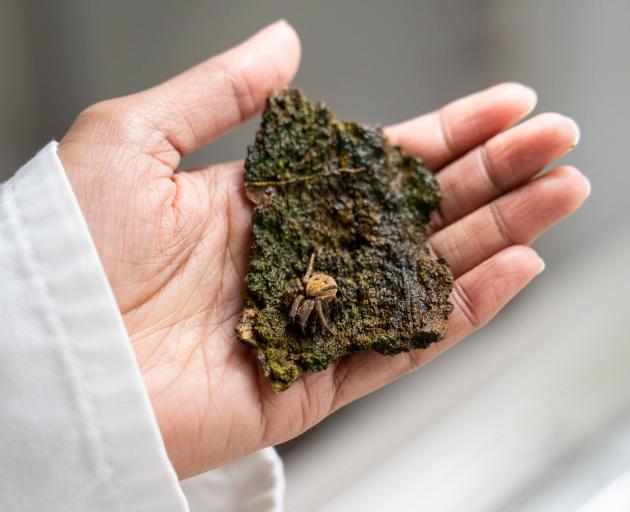Science
Parasitic Worms Transform Spiders into “Zombies” in New Zealand

A study led by Usha Mendis, a PhD student at Lincoln University, has revealed a disturbing phenomenon where parasitic worms, known as mermithids, manipulate spiders, effectively turning them into “zombies.” This research highlights the significant impact these parasites have on local ecosystems in New Zealand, where over 90% of spider species are endemic.
Mendis is dedicated to understanding how these nematodes invade their hosts and the implications for biodiversity. “New Zealand has a large number of endemic spiders… If something were to happen to them, it would not be good for our biodiversity,” she stated. The implications are dire; as these worms take control, they disrupt the natural roles spiders play in the food chain.
The infection process is gradual and fatal for the spider. Signs of parasitism can be subtle, with infected spiders exhibiting unusual physical changes. Mendis noted that “their legs get shorter but thicker, the spider is physically changing. The abdomen gets bigger and swollen too. They look like zombies.” Unfortunately, the only definitive sign of infection is the emergence of the nematode after the spider’s death.
Understanding how these parasites enter their hosts remains a mystery. Researchers have observed that the mermithids require water to advance to their next life stage, leading spiders to seek out moist environments. “They consume the energy and nutrients of the host and grow inside it,” Mendis explained. Once in a suitable environment, the nematodes can mate and lay eggs, starting the cycle anew.
Mendis is actively collecting data on these parasites using water traps designed to lure infected spiders. While mermithids were first documented in New Zealand just 35 years ago, much remains unknown about their relationship with the spider population. Researchers continue to investigate how these parasites impact spider behavior and survival.
The situation calls for a shift in public perception of spiders. Mendis urges people to recognize the essential role spiders play in maintaining ecological balance. “Spiders may look disruptive and creepy, but they’re not the enemy. They’ve got their own problems to deal with,” she said. As the study progresses, Mendis hopes to shed light on the complexities of this parasitic relationship and its broader implications for biodiversity in New Zealand.
-

 World2 weeks ago
World2 weeks agoPrivate Funeral Held for Dean Field and His Three Children
-

 Top Stories2 weeks ago
Top Stories2 weeks agoFuneral Planned for Field Siblings After Tragic House Fire
-

 Sports3 months ago
Sports3 months agoNetball New Zealand Stands Down Dame Noeline Taurua for Series
-

 Entertainment3 months ago
Entertainment3 months agoTributes Pour In for Lachlan Rofe, Reality Star, Dead at 47
-

 Entertainment2 months ago
Entertainment2 months agoNew ‘Maverick’ Chaser Joins Beat the Chasers Season Finale
-

 Sports3 months ago
Sports3 months agoSilver Ferns Legend Laura Langman Criticizes Team’s Attitude
-

 Sports1 month ago
Sports1 month agoEli Katoa Rushed to Hospital After Sideline Incident During Match
-

 World3 weeks ago
World3 weeks agoInvestigation Underway in Tragic Sanson House Fire Involving Family
-

 Politics2 months ago
Politics2 months agoNetball NZ Calls for Respect Amid Dame Taurua’s Standoff
-

 Top Stories2 weeks ago
Top Stories2 weeks agoShock and Grief Follow Tragic Family Deaths in New Zealand
-

 Entertainment3 months ago
Entertainment3 months agoKhloe Kardashian Embraces Innovative Stem Cell Therapy in Mexico
-

 World4 months ago
World4 months agoPolice Arrest Multiple Individuals During Funeral for Zain Taikato-Fox



















